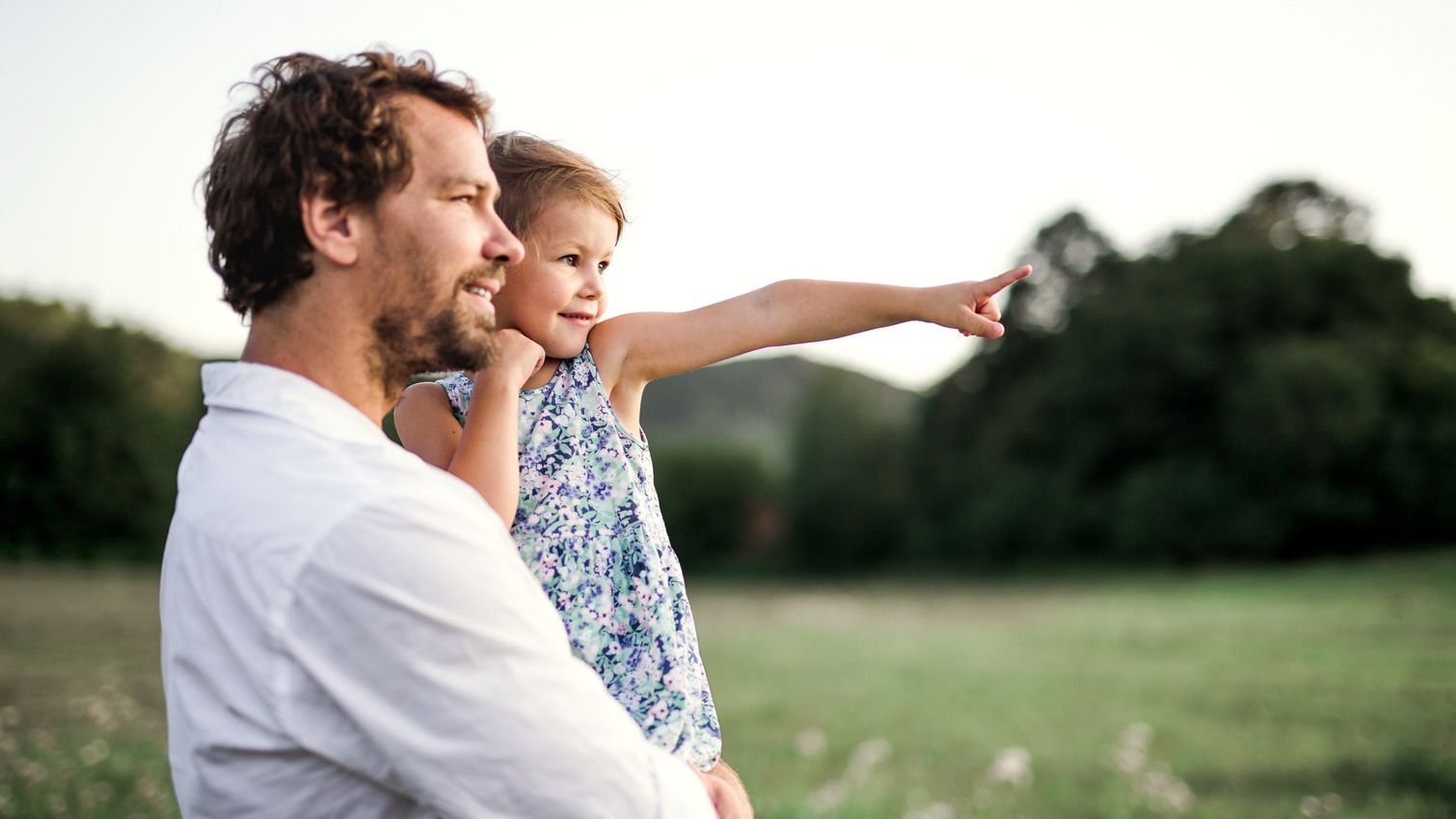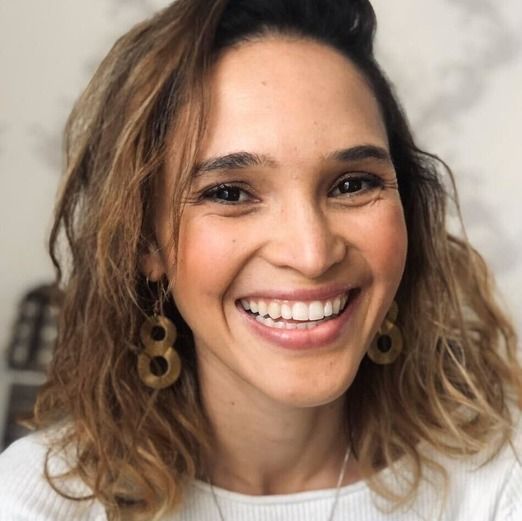Behave or Be Brave? A Peek Inside of Parent Coaching

"There is nothing wrong with my daughter’s behavior. She doesn't need to be fixed. She needs to be supported."
At the end of our session, I asked my client what she would take from our time together. The quote above was her response. She said it with a smile, relief in her body, and gratitude for seeing her daughter beyond her behavior and her own fears.
This conversation is how our session ended, but for you to appreciate the clear ending, it helps to understand the cluttered beginning. A mother reached out to me from a place of confusion. She intended to gain some clarity and understanding of her child’s social development. We discovered we had to go beyond her heartache and pain to understand her child’s body and brain.
Understanding what keeps us from being brave
Our brains and bodies are designed to detect threats and protect us from harm. Our brain knows how to behave in the presence of danger. It communicates that to our bodies, calling for us to be brave. Something happens in our body before we choose bravery. Our nervous system switches gears into high alert. It prepares for danger.
Sometimes, the danger is not real.
Parents have an exceptional danger detector when it comes to their children. This danger detector senses our child's needs and calls us to show up. Mama Bear and Papa Penguin emerge in the face of any threat to their child, and a parent can be brave despite the danger.
Sometimes, the threat is not real.
Don't get me wrong. The danger and threat can
feel real. Our brain and body have been trained to survive. Fear and anger activate emotions that put us in gear to take action. We fall into default behavior patterns or get brave to manage these situations.
What happens when we live in a community, culture, country, or world that is confused and conflicted about the actual vs. perceived dangers and threats to survival? Parenting adds another dimension to our danger detector for our children. The threats can feel very real and personal. As parents, our brains could wave red flags at:
- A phone call from school requesting a meeting to implement a behavioral plan for your 4-year-old.
- The teacher calls to express concern about your 2-year-old, who is 'antisocial.'
- Your tween or teen messes up, makes a bad choice, tells a lie, or yells at you.
Parents worry. They're afraid. They sense danger. The fear or anger they feel and the threat signals that light up are not only for their children but also for themselves.
It's easy to fall into the trap of focusing on behavior – which, as parents, could look like reactive measures to deal with the threat signal. We may react to those red flags raised above when we focus on behavior. We may:
- Meet with the school and put a behavioral plan in place, punish the child for their behavior by taking away their devices, or lecture the child on bad/disruptive behavior and why they shouldn't be doing it.
- Book your child in for play or occupational therapy or arrange more playdates.
- Yell, punish, or lecture your child on their attitude.
Why we get stuck in behaving
Many of us are conditioned to behave, fit into society's boxes, and comply with the standard behavior expectations in a community, culture, or country's systems. Some systems enslave us when they try to control how we behave, whether we want to admit it or not.
According to the Cambridge Dictionary, to enslave
“is to control someone's actions, thoughts, emotions, or life completely.” Parents are influenced and guided by these systems, influencing how we raise our children. Some systems directly impact or threaten the family values we align to, such as:
- School systems
- Religious systems
- Family systems
- Cultural systems
- Legal Systems
These systems have their purpose and place in our lives and development.
However, there are three core mistakes we tend to make when looking only at the behavior:
- First, we see the behavior as intentional, as in, 'My child is choosing to be naughty/disruptive/loud.'
- Second, we take a 'one-size-fits-all' approach to dealing with the behavior, as in 'My child needs to be punished/needs to be diagnosed/needs to learn a lesson.'
- Lastly, where education is super important, we need more fundamental knowledge and understanding of human development.
From a very young age, we are taught how to behave through different messages, lessons, and modeling of what good behavior looks and sounds like. We are acknowledged, praised, and rewarded for “good behavior.”
Parents who raise well-behaved children are complimented, admired, and respected by other parents, grandparents, friends, school teachers, community leaders, sports coaches, etc.
But all of this focus on behavior robs our children of something precious. It teaches them that compliance is a more important goal than freedom. I’m not saying that there aren’t standards of behavior that we can guide our children to adopt. I’m encouraging the addition of another ingredient to the mix: Bravery.
Why we need to be brave
Who needs to be brave when they know how to behave?
We all do!
The dictionary defines bravery as
"having or showing mental or moral strength to face danger, fear, or difficulty.”
Bravery allows us to discern between real and perceived danger. Understanding the difference between raising our children to behave
or be brave, I believe that most parents hope to raise children with the mental and moral strength to face their fears and life’s difficulties confidently.
Inviting parents and children to be brave can be challenging. This challenge is especially true in the times we're living in when the systems that are supposed to be leading, guiding, educating, and liberating us are enslaving us.
Cultivating awareness of what's happening inside you – inside your brain, heart, and body – is an act of bravery. Getting curious and gaining an understanding of and compassion for your fears is an act of bravery.
When we can be brave, we respond instead of reacting. When our brain hones in on red flags, and the conditioned reactions prompt us to
fix the problem, we can remember that bravery can serve us well. Using the above examples, a brave parent might choose differently.
Perhaps we:
- Meet with the school to understand why our child struggles to concentrate, participate or listen in class. We ask questions, share observations, and look at the environment.
- We schedule more 1:1 time with our children. We work on creating a safe and secure relationship within the family that will be the foundation for their relationships outside.
- We slow down, get curious and listen. We connect with our tween or teen and let them know that we care, are there for them, and want to help.
What's more important: to behave or be brave?
Both are important and have value. As a parent, I aim to nurture and encourage bravery as the foundation of my children's behavior. As a parent coach, I aim to educate and illuminate bravery as the platform from which parents choose to parent their children.
Bravery is being able to say and believe that; "There is nothing wrong with my child."
I checked in on my client a few days after our session, after she had time to reflect on our conversation, integrate her new awareness, and practice some of the strategies we brainstormed together. She said, “It’s reassuring to know that my child’s behavior makes sense in the grand scheme of things.”
My client came to me thinking she needed to do something to correct her child’s behavior and learned that there was nothing to fix. She only had a child who needed to be understood and supported.
“Courage is the first of human qualities because it is the quality which guarantees the others.” — Aristotle.
Meet Your Author, Delicia Moraleda
Delicia Moraleda is a certified Master Trainer at The Jai Institute for Parenting and a former Montessori Preschool Teacher who is determined to contribute to the gentle revolution that helps parents show up for their children in ways that will improve our world.
In her work as a coach, Delicia enthusiastically simplifies important and life-changing information that inspires parents to enjoy their parenting journey, celebrate themselves and their children and confidently embody their family values.
When she’s not diving deeper into child development or neuroscience, she’s dancing and walking around her island home. She enjoys her two sons' unconditional love and her dear husband's unwavering support.
Business Name: Go Beyond Parenthood
Website:
www.gobeyondparenthood.com
Share This Article:
Curious for more?














